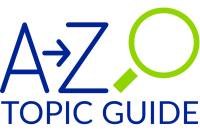Topic-Specific Resources Listed from A-Z
Men and Mental Health
The following article is from the National Institute of Mental Health (NIMH). While this material has been expert-reviewed, it is not NIMH or MHANYS intention to provide specific medical advice. Both MHANYS and NIMH advise readers to consult with a qualified health care provider for diagnosis, treatment, and answers to personal questions.
Men and Mental Health
While mental illnesses affect both men and women, the prevalence of mental illnesses in men is often lower than women. Men with mental illnesses are also less likely to have received mental health treatment than women in the past year. However, men are more likely to die by suicide than women, according to the Centers for Disease Control and Prevention. Recognizing the signs that you or someone you love may have a mental disorder is the first step toward getting treatment. The earlier that treatment begins, the more effective it can be.
Mental health includes emotional, psychological, and social well-being. Learn more about taking care of your mental health.
Warning Signs
Men and women can develop most of the same mental disorders and conditions but may experience different symptoms. Some symptoms include:
- Anger, irritability, or aggressiveness
- Noticeable changes in mood, energy level, or appetite
- Difficulty sleeping or sleeping too much
- Difficulty concentrating, feeling restless, or on edge
- Increased worry or feeling stressed
- Misuse of alcohol and/or drugs
- Sadness or hopelessness
- Suicidal thoughts
- Feeling flat or having trouble feeling positive emotions
- Engaging in high-risk activities
- Aches, headaches, digestive problems without a clear cause
- Obsessive thinking or compulsive behavior
- Thoughts or behaviors that interfere with work, family, or social life
- Unusual thinking or behaviors that concern other people
Mental disorders can be treated: If you are unsure where to go for help, ask your family doctor. Communicating well with your health care provider can improve your care and help you both make good choices about your health. Read about tips to help prepare and get the most out of your visit.
If you or someone you know is in a crisis, get help immediately. You can call 911 or call or text the 988 Suicide & Crisis Lifeline at 988.
Federal Resources
- Brother, You’re on My Mind: This National Institute on Minority Health and Health Disparities initiative uses a variety of activities to raise awareness of the mental health challenges associated with depression and stress that affect African American men and their families.
- Men’s Health: National Library of Medicine’s MedlinePlus offers resources on men’s health (en Español).
- Mental Health for Men: This blog post from the U.S. Department of Health and Human Services’ Office on Women’s Health discusses the importance of supporting men’s mental health.
- National Center for PTSD: A program of the U.S. Department of Veterans Affairs, this Center offers targeted information for anyone interested in post-traumatic stress disorder (including Veterans, family, and friends).
- Preventing Suicide Among Men in the Middle Years: Recommendations for Suicide Prevention Programs: This Suicide Prevention Resource Center created this resource to help state and community suicide prevention programs design and implement projects to prevent suicide among men in the middle years.
Substance Abuse and Mental Health Services Administration: SAMHSA offers publications addressing the specific needs of men.
Mental Health Association in New York State (MHANYS) has additional resources that can be accessed through its main website. These resources include links to advocacy and policy work, school-based programs, mental health wellness training programs and more.
MHANYS
mhanys.org
Advocacy and Policy
mhanys.org/advocacy-policy
Mental Health Community Partners
mhcommunitypartners.org
CarePath™
mhanys.org/carepath
SMHRT: Family Education
https://www.mentalhealthednys.org/family-education-webinar-series/
Data Source
National Institute of Mental Health: Mental Health Information Health Topics www.nimh.nih.gov/health/topics
